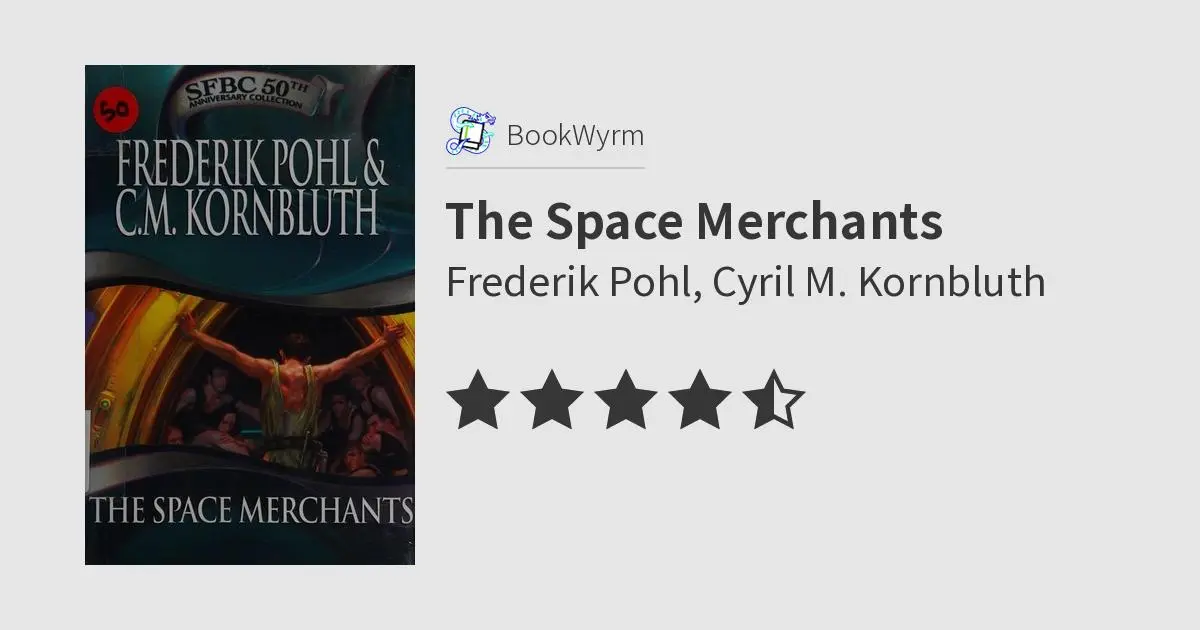I have a kind of specific fascination for proto-cyberpunk, generally stories that preceded the cyberpunk genre’s start and have most of the elements but aren’t quite there for one reason or another. I think it’s fascinating to see how these things form, to try to find strands of DNA through fiction. Writers, sometimes decades earlier, voicing the same complaints, identifying the same problems I associate specifically with cyberpunk.
The first one I thought I’d mention is a pretty safe bet: Frederik Pohl and C M. Kornbluth’s The Space Merchants
Written in 1952, this book has everything but the 1980s feel of a cyberpunk story: Megacities, corporate-states, corporate espionage, addiction-based-marketing, subscription-based-police, corporate citizenship in layers right down to indentured servitude, ecological collapse and a society that doesn’t care. Even the visuals of layered, overcrowded, continent-spanning cities.
But it feels like a 1950s science fiction story. It’s great; very slick and steeped in the language of marketing. That works really well for it. But it doesn’t feel like a cyberpunk story.
I think that’s part of the reason I find looking at these precursor stories so fascinating. Cyberpunk discussions often fold in on ‘is this even cyberpunk?’ and it can be really interesting to see something that has so many of the elements but is still something else.
Obviously these are all just my opinions, and I’d love to hear anyone else’s on this book.
Oh, one last opinion: If you’re going to get a paperback, get the 1976 version, it looks great.



I’m glad you liked it!
I read once, in regards to the early cyberpunk stuff that it’s set in the future, but it’s about the 1980s. That’s not hugely profound, I know. Most scifi is examining something from its time. But it gave me a good lens to examine it through, and a way to consider what tropes I was using in my own stories and whether they were built on vestigial 1980s concerns.
With this book, it’s almost like almost like some kind of convergent evolution, like these guys in the 1950s indepently reached a lot of the same setting ideas that cyberpunk would put together in the 1980s, but from different starting concerns. It really is very much of its time.
Thanks for reading it!